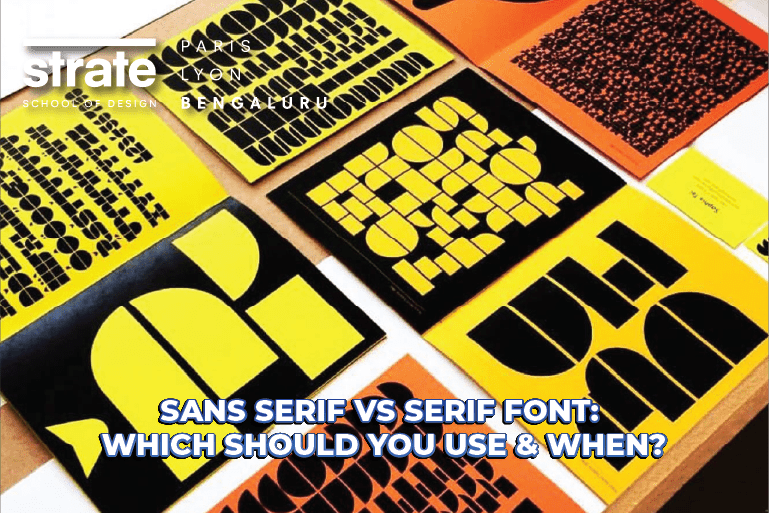Portfolio or Degree: What Matters in Design?
Are you in a dilemma about which bachelor’s degree will get you the best job with a hefty salary? This confusion is quite common, especially given the abundance of degrees in the market. Design, becoming a more popular career choice, has joined this group, with many colleges offering various degrees in the domain. You have BSc, MSc, BDes, MDes, B.Voc, diploma, certifications, short-term, long-term, distance, online, full-time, part-time and so many ways to get a design degree.
But does a shining design degree without a relevant and creative portfolio mean anything? Does the degree make you a better designer than others? Does it give you more value? Of course not.
The competition between design degrees is also one that is glaringly evident in the education sector. Many prefer a BDes over BSc thinking that the former offers more “weight” when it comes to getting a job.
Therefore, it is natural that students and parents will gravitate towards degrees they feel will offer better returns.
What they don’t realize is that a degree (B.Sc or B.Des) is just a piece of paper without a professional portfolio to back it up. In design, portfolio and skills are everything; they give employers an idea of who the designer is and what he/she can actually do.
A degree without a portfolio means you are trained to remember concepts rather than apply them. Application of your skills makes you an efficient asset for a company. Having only a degree will make you an employee without independent thought and does what is told. This severely limits your chances of succeeding as a designer.
If you think a degree is what companies are looking for, then you need to do some serious rethinking.
Job-search site Glassdoor recently compiled a list of top companies who are hiring candidates based on their skills rather than their college degrees. Google, Apple, EY, IBM, and Starbucks, among others, figure in the list.
Read more: 15 More Companies That No Longer Require a Degree
Even the founders of these companies lead by example.
Bill Gates, the co-founder of Microsoft, does not have a degree. Mark Zuckerberg, the creator of the world’s most popular networking site, Facebook, dropped out of Harvard. Steve Jobs of Apple, Michael Dell of Dell, Jack Dorsey of Twitter, and so many others are successful in their fields because of their talent and business acumen, not their degree.
It wouldn’t have mattered if these entrepreneurs had a BDes or BSc or BTech or B.E. Their vision is what made their company grow and become a financial success.
“About half of our U.S. employment last year were people that did not have a four-year degree.”
Tim Cook, CEO, Apple Inc.
Another example of a degree-less success story is that of Hannah Maddy, Senior Product Designer at Netflix. She does not possess a four-year degree. In fact, she’s a high school dropout. Maddy gained skills by working on different projects, learning to code, and sending her portfolio to different employers. Today, she’s an executive at one of the top companies in the world.
A lot of companies indeed hire from top design colleges with top design degrees, but some positions are also filled by candidates who don’t have a four-year bachelor’s degree or two-year master’s degree.
More and more companies are looking for candidates who can innovate and think rather than follow directions and execute.
Now, you may question, is a design degree even necessary if skills are all that matters?
The answer is, a degree is absolutely necessary.
Or rather, formal education is necessary. The type of degree, not so much. Studying in a college, among people your age, being taught by highly qualified trainers, industry experts, and getting a world view of design is an important part of your growth that shouldn’t be neglected. Plus, having a degree does offer better compensation when compared to not having one.
The main point is that without a good portfolio that showcases your skills, a degree is of little use.
“There’s nothing wrong with getting the highest grades in the class, but that isn’t going to be the quality that sets apart a big winner from the rest of the pack.”
Warren Buffett, CEO, Berkshire Hathaway
A good design school will nurture your talents and prepare you for the industry. You also work on numerous projects to acclimate yourself to the nuances and quirks of design. Besides, you develop a work ethic and style that will set you apart from others in your industry.
The right design school will help you,
• Showcase the reality of design and the industry
• Imbibe innovation and forward-thinking
• Offer comprehensive and industry-relevant design training
By doing so, the school enables you to create a unique, personalized, and professional portfolio that highlights your style and way of thinking.
Not all design schools in India offer a comprehensive degree and the opportunity to create a professional portfolio. Only a few do, among which is Strate School of Design.
Therefore, don’t waste your time worrying about the type of degree you want. When it comes to jobs, employers will not see whether you have a B.Des or a B.Sc. What matters to them is your knowledge of the design process and how well you can apply it in the real world.
Only a comprehensive portfolio showcasing your skills, with any design degree, can make you a successful designer. So, stop the endless pursuit of the “right” degree. There isn’t one.





Want to Become a Designer ?
Strate is a unique design school that nurtures your talents as a designer by offering state-of-the art designing courses in Bangalore.
Join Strate